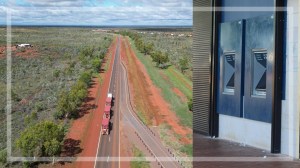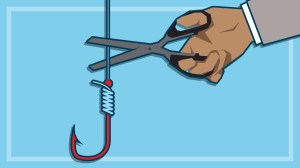
HSBC Bank no help as scammers steal $23 million
Fact-checked
Fact-checked
Checked for accuracy by our qualified fact-checkers and verifiers. Find out more about fact-checking at CHOICE

Need to know
- Late last year we reported that four out of five of the 280 scam victims we surveyed received no warning from their bank before transferring money to a scammer
- ASIC is taking HSBC Bank to court for knowing that scam transactions were likely taking place and doing very little about it
- In November this year, legislation was introduced in Parliament to establish a new Scams Prevention Framework that would require banks to prevent scams
Banks in Australia often deny culpability when their services are used in the commission of a scam. The blame almost always falls on the victim, even if the scammers have managed to set up fraudulent accounts or commandeered real ones and used them to steal people’s money.
In August, we reported that four out of five of the 280 scam victims we surveyed received no warning from their bank before transferring money to a scammer. About half of these scam victims told us that when they did receive some form of support from their bank, it didn’t come close to helping them get their money back.
Cases of banks being held to account when they’ve inadvertently enabled a scam are few, but it does happen.
The Australian Financial Complaints Authority (AFCA) received 4131 banking and investment scam complaints in the 2021–22 financial year and orchestrated the payment of $15,292,650 to victims by the financial firms involved. But if that sounds like an impressive figure, it would have been just a small fraction of overall scam losses.
‘Gaps in their fraud controls’
Now the Australian Securities and Investments Commission (ASIC) is taking HSBC Bank to court for knowing that scam transactions were likely taking place and doing very little about it.
“We allege that from at least January 2023, HSBC Australia was aware of the risks of unauthorised transactions occurring and that there were gaps in their fraud controls. This resulted in some customers getting scammed out of $90,000 or more,” says deputy chair Sarah Court.
We allege that from at least January 2023, HSBC Australia was aware of the risks of unauthorised transactions occurring
ASIC deputy chair Sarah Court
Between January 2020 and August 2024, HSBC received approximately 950 reports of unauthorised transactions, resulting in customer losses of about $23 million, according to ASIC. Almost $16 million of this occurred in the six months from October 2023 to March 2024.
Despite the surge of fraudulent activity, the bank allegedly took an average of 145 days to investigate scams reported by its customers.
Under the ePayments Code, banks are obligated to investigate unauthorised transactions within 21 days or let customers know they need more time. They’re also required to promptly reinstate banking services to customers whose accounts were suspended after reporting them.
HSBC took an average of 95 days to reactivate accounts, and one customer didn’t have full access restored for 542 days, ASIC says.
“We allege HSBC Australia’s failings were widespread and systemic, and the bank failed to protect its customers,” Court says.
The stories we heard from the HSBC victims who contacted us were heartbreaking. They were shamed by their bank and denied support when they reached out for help
Consumer Action CEO Stephanie Tonkin
Counsellors at the consumer advocacy organisaton Consumer Action were contacted by a number of HSBC scam victims after the bank failed to provide support.
“The stories we heard from the HSBC victims who contacted us were heartbreaking. They were shamed by their bank and denied support when they reached out for help,” says CEO Stephanie Tonkin.
“Many lost life-changing amounts and then had to take on an adversarial HSBC which fought them tooth and nail. The cases were strikingly similar, HSBC was on notice of the scam and should have stopped the losses far sooner.”
Banks leaving customers stranded
Late last year, we reported on a case of a couple in their 80s who lost their savings in a known investment scam. The bank facilitated the transaction without checking.
In early 2024, we reported on the case of a family who were scammed out of $2.5 million thanks to the unwitting cooperation of seven major banks.
Thankfully, action is being taken that should mean all of this is due to come to an end. In early November this year, legislation was introduced in Parliament to establish a new Scams Prevention Framework that would require banks as well as digital platforms to prevent and respond to scams.
How the new framework will work in practice remains to be seen, but CHOICE will be keeping a close eye on developments.
Related




